
If you want to learn about phenology and invasive species, check out my webinar to the Southeast RISCC group on YouTube. #climate #phenology #invasivespecies #ipm #pest @nwriscc.bsky.social
youtu.be/0lVDIiGgnJM?...
@nwriscc.bsky.social
Connecting research with practice at the nexus of climate change and invasive species in the Northwest A program of the Northwest Climate Adaptation Science Center @nwcasc.bsky.social and part of the broader RISCC Network www.nwriscc.org

If you want to learn about phenology and invasive species, check out my webinar to the Southeast RISCC group on YouTube. #climate #phenology #invasivespecies #ipm #pest @nwriscc.bsky.social
youtu.be/0lVDIiGgnJM?...

To learn more about Dr. Barker's work, join our counterparts at the Southeast RISCC Network for a webinar on "Supporting Early Detection of Invasive Insects with Phenological Mapping" on Sept. 16th, 10am Pacific / 1pm Eastern. Register here: ufl.zoom.us/meeting/regi...
26.08.2025 18:52 — 👍 1 🔁 1 💬 0 📌 0Thanks @brittanysbarker.bsky.social for contributing this research summary!
26.08.2025 18:52 — 👍 1 🔁 0 💬 1 📌 0
The potential establishment of spotted lanternfly in the Northwest poses risks to plant industries, especially viticulture.
Our latest research summary covers a newly developed model that provides forecasts of where and when to expect eggs, nymphs and adults.
bit.ly/Barker-25
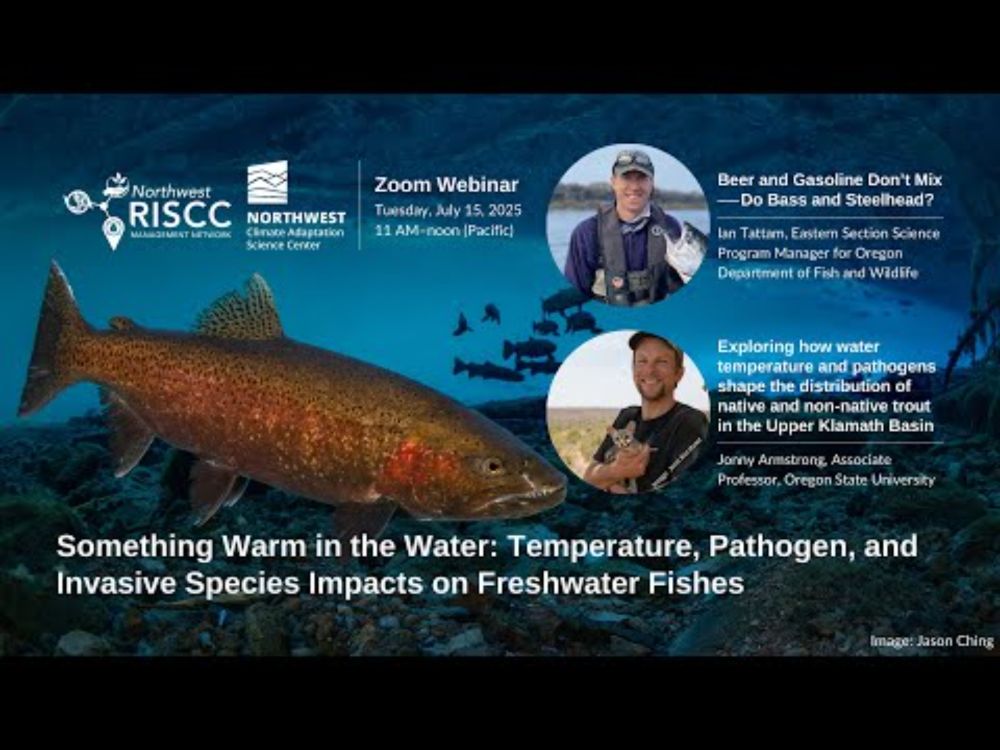
A recording is now available for our summer webinar, “Something Warm in the Water: Temperature, Pathogen, and Invasive Species Impacts on Freshwater Fishes.”
Watch via our website (nwriscc.org) or YouTube!
RAD (Resist-Accept-Direct) is a decision-making framework that can help managers think through climate challenges; learn more through the upcoming National CASC webinar series!
21.07.2025 22:00 — 👍 1 🔁 0 💬 0 📌 0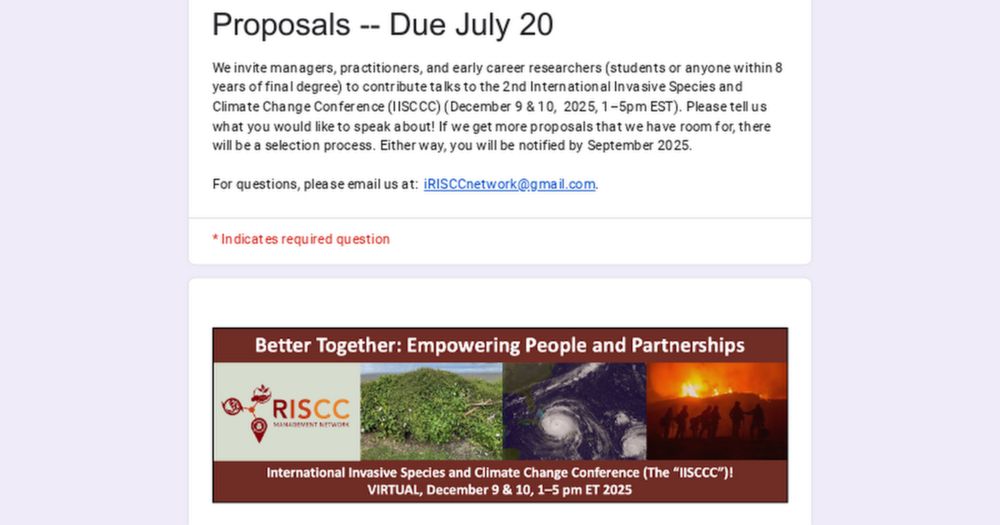
Practitioners and early career researchers, Sunday's the deadline to submit your talk proposals for the International Invasive Species & Climate Change Conference (IISCCC)!
bit.ly/IISCCC25-submit
Tomorrow is our summer webinar! There's still time to register! bit.ly/NW-RISCC-July-Webinar
14.07.2025 16:43 — 👍 0 🔁 0 💬 0 📌 0Visit our Webinars page for more info: sites.google.com/view/nwriscc...
17.06.2025 21:32 — 👍 0 🔁 0 💬 0 📌 0In this webinar, Jonny Armstrong will present NW CASC-supported research on trout, temperature, and pathogens in the Upper Klamath Basin, and Ian Tattam will discuss the Oregon Department of Fish & Wildlife’s work on non-native bass and juvenile steelhead interactions in the John Day River.
17.06.2025 21:32 — 👍 0 🔁 0 💬 1 📌 0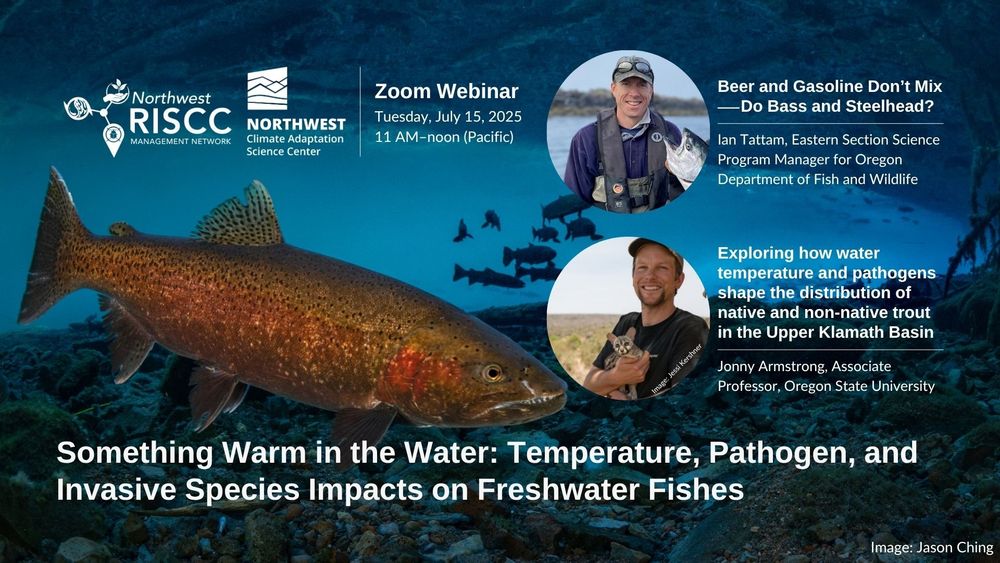
An underwater photo of a rainbow trout surrounded by blue water (image by Jason Ching) serve as the background for white text that says "Something Warm in the Water: Temperature, Pathogen, and Invasive Species Impacts on Freshwater Fishes, Zoom webinar, Tuesday, July 15, 2025, 11 AM–noon (Pacific)." Circular image insets show portraits of the two speakers alongside talk and speaker information, as follows: "Beer and Gasoline Don't Mix—Do Bass and Steelhead? Ian Tattam, Eastern Section Science Program Manager for Oregon Department of Fish & Wildlife" and "Exploring how water temperature and pathogens shape the distribution of native and non-native trout in the Upper Klamath Basin, Jonny Armstrong, Associate Professor, Oregon State University." Also included, in white, are the logos for the Northwest RISCC Management Network & Northwest Climate Adaptation Science Cente.
Join us for some fishy summer fun at our next webinar, "Something Warm in the Water: Temperature, Pathogen, and Invasive Species Impacts on Freshwater Fishes" on Tues., July 15, 11am PT, featuring speakers Jonny Armstrong and Ian Tattam!
Register at: bit.ly/NW-RISCC-July-Webinar
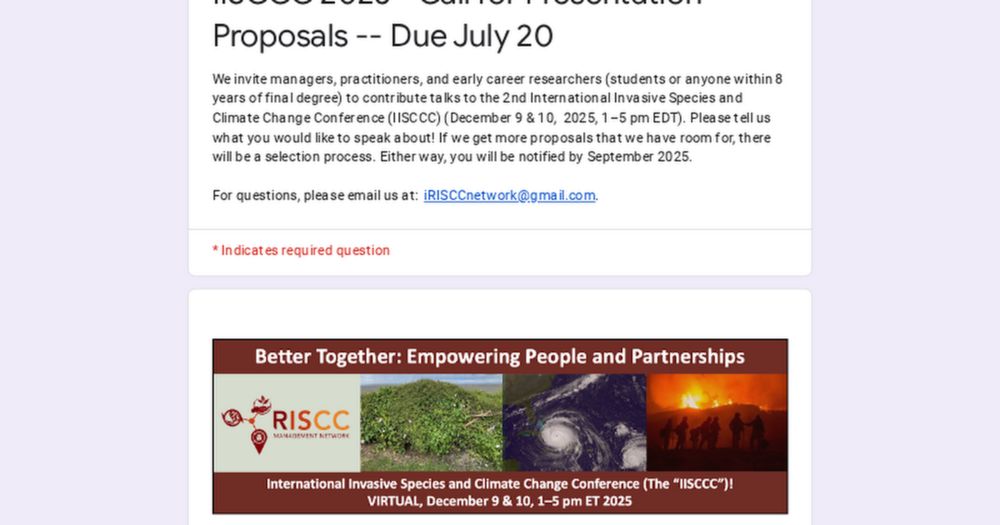
Interested in presenting? The IISCCC 2025 Planning Committee invites natural/cultural resource managers and early career folks to submit talk proposals. Tell us about what you'd like to talk about here: forms.gle/21wx1FFXbLB8...
03.06.2025 18:35 — 👍 0 🔁 0 💬 0 📌 0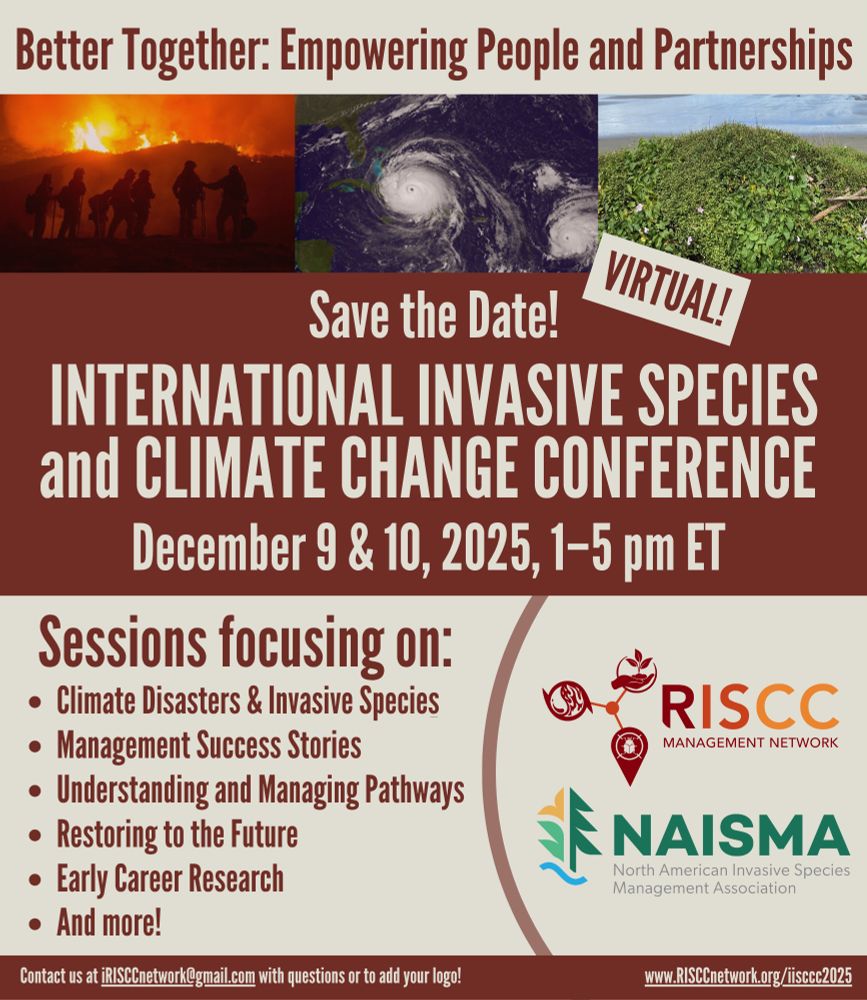
A poster with a burgundy and cream color scheme announcing, "Better Together: Empowering People and Partnerships. Save the Date! International Invasive Species and Climate Change Conference, December 9 & 10, 2025, 1–5 pm ET. Sessions focusing on: Climate Disasters & Invasive Species, Management Success Stories, Understanding and Managing Pathways, Restoring to the Future, Early Career Research, and more! Contact us at iRISCCnetwork@gmail.com with questions or to add your logo! www.RISCCnetwork.org/iisccc2025" and including the logos for the RISCC Management Network and NAISMA, North American Invasive Species Management Association. A banner of images at the top depicts firefighters silhouetted against a blaze, a satellite image of a hurricane, and a tangle of plants on a sand dune.
Save the date for the 2nd annual International Invasive Species & Climate Change Conference (IISCCC): December 9 & 10, 2025, 10am–2pm PT / 11am–3pm MT!
More info: risccnetwork.org/iisccc-2025
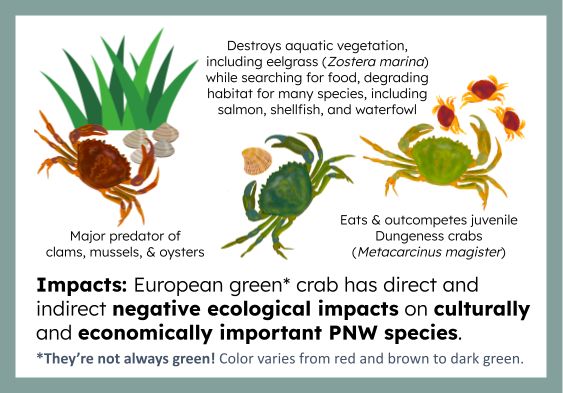
An illustration of three color morphs of the European green crab (red, dark green, and lighter green) alongside grass, clams, and juvenile Dungeness crabs. Text around and below the illustration reads: Impacts: European green* crab has direct and indirect negative ecological impacts on culturally and economically important PNW species. Destroys aquatic vegetation, including eelgrass (Zostera marina)3 while searching for food, degrading habitat for many species, including salmon, shellfish, and waterfowl. Major predator of clams, mussels, & oysters. Eats & outcompetes juvenile Dungeness crabs (Metacarcinus magister). *They’re not always green! Color varies from red and brown to dark green.
The European green crab has known and potential economic, cultural, and ecological impacts in the NW + beyond.
Check our latest NW RISCC Management Brief for information on the ways warming temperatures are influencing this ongoing invasion and management efforts:
bit.ly/NW_RISCC_briefs
Want to get involved? You can....
✨ Stay up-to-date on events, research summaries & more: tinyurl.com/5t3mxhry
✨Share new research: tinyurl.com/4jw23kww
✨Share invasive species x climate management stories: tinyurl.com/52tzvwyt
✨Join our Advisory Team: tinyurl.com/3tp65hce
3/3
We explore on-the-ground management, conservation, and research needs and opportunities related to climate change and invasive plants 🌱, animals 🦀, and pathogens 🦠 (among other organisms!) in the NW (OR, ID, WA, BC, and neighboring states and provinces).
2/3
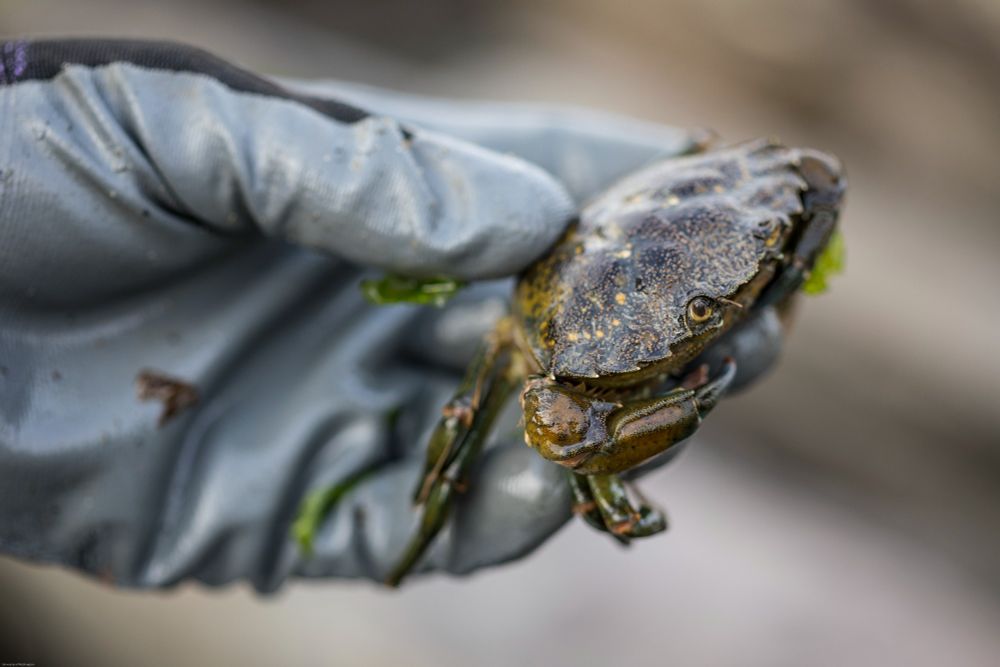
An invasive European green crab is held by a rubber-gloved hand
Hi Bluesky! 👋 Let us introduce ourselves!
The Northwest Regional Invasive Species & Climate Change (NW RISCC) Network (nwriscc.org) is a partnership of regional agencies and orgs connecting climate adaptation & invasive species science and management.
Check out this 🧵 to learn more!
1/3